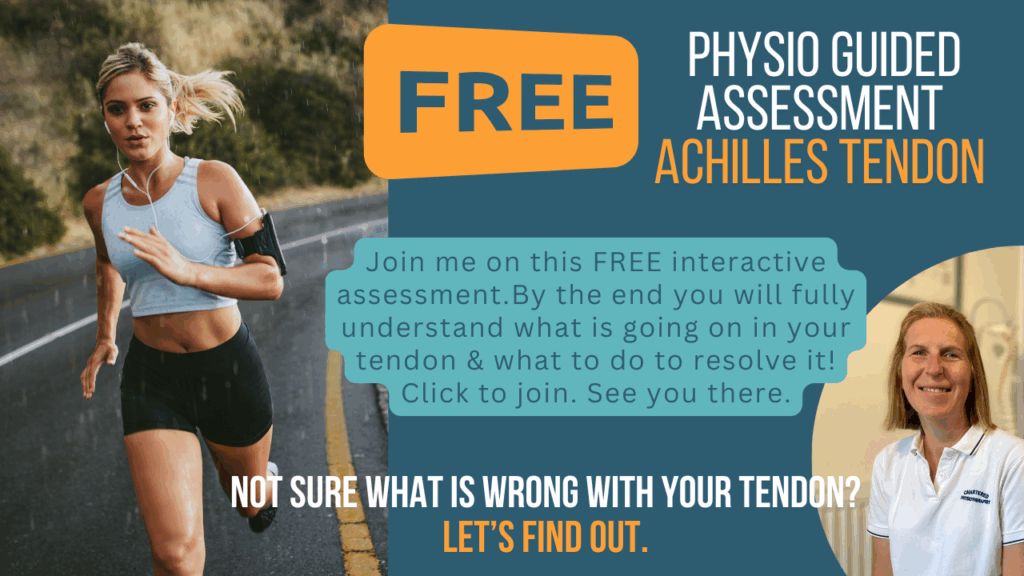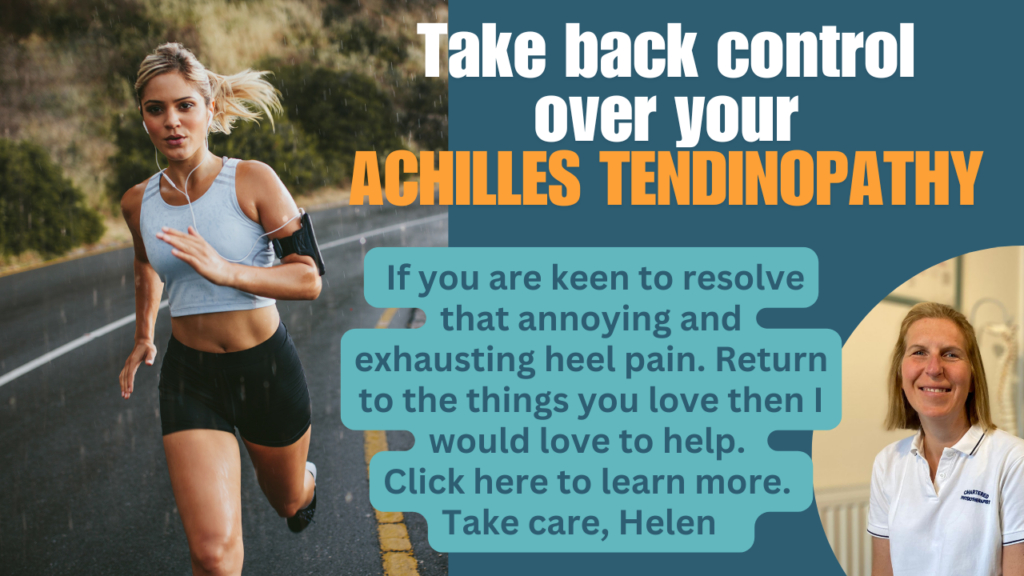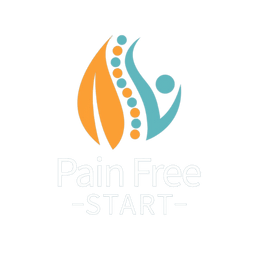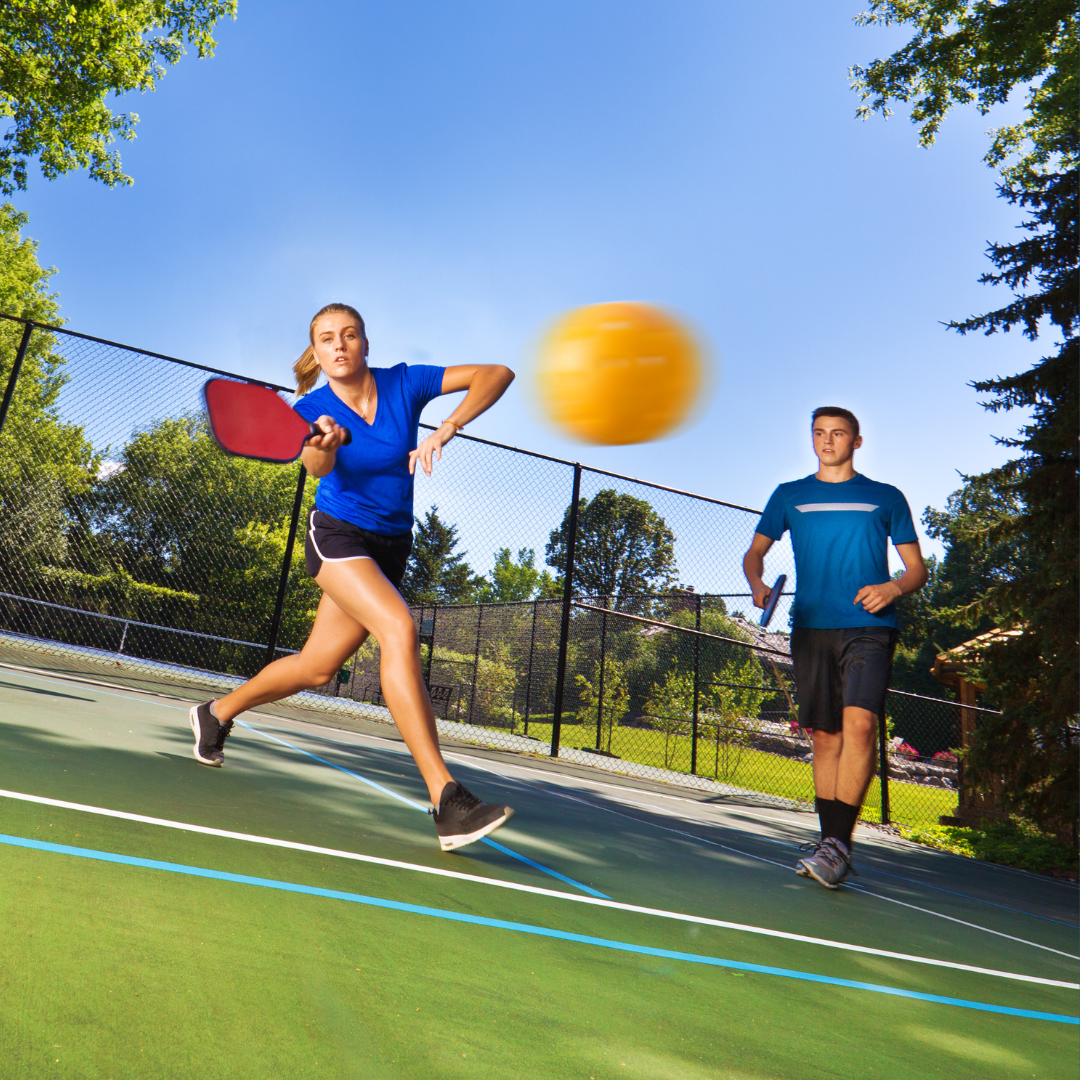Dealing with Achilles tendon pain? You’re not alone — and you’re definitely not the only one trying to keep playing pickleball while managing it. Whether you call it Achilles tendonitis or the more accurate term, Achilles tendinopathy, one thing’s clear: the right footwear can make a big difference.
Wait — what’s the difference between Achilles tendonitis and tendinopathy?
Most people still say “Achilles tendonitis,” but it’s actually a bit misleading. The “-itis” suggests inflammation, whereas tendinopathy is more about overload and tissue change — often from doing too much, too quickly, or playing through discomfort for too long.
You don’t need to worry about the wording too much, though. What matters is that you support your recovery with smart choices — and footwear is one of them.
First things first — are you sure it’s your Achilles?
Pain at the back of your heel or lower calf could be Achilles tendinopathy… or it might be something else entirely. I’ve created a FREE Achilles Self-Assessment you can follow along with — we’ll check your symptoms, look at common patterns, and start exploring how to get you back to moving freely.
👉 Click here to access the free assessment

What to Look for in Pickleball Shoes if You’ve Got Achilles Pain
When your Achilles is irritated, certain shoe features can help:
- A slight heel lift (to reduce tendon strain)
- Good cushioning under the heel
- Firm heel support to prevent wobbling
- A fit that feels secure but not too tight
Avoid very flat, unsupportive shoes — and steer clear of ones that dig into the back of your heel.
My Top Picks: Pickleball Shoes That Are Kind to Your Achilles
Just so you know: This post contains affiliate links. If you choose to make a purchase, I may earn a small commission — at no extra cost to you. It helps support the work I do to help people like you feel better, move better, and stay active. Thank you!
ASICS Gel-Renma Pickleball Shoes
These are a fantastic all-rounder — supportive, comfortable, and built with pickleball in mind. They’ve got just enough lift at the heel to ease pressure on the tendon, plus a nice stable base that helps you feel grounded and secure.
K-Swiss Express Light Pickleball Shoes
Lightweight but still supportive, these are great if you want something that helps you move fast without overloading your Achilles. The heel is gently raised, which can make a big difference for mid-stage tendon pain, and they feel snug without being stiff.
New Balance 696 V5 Hard Court Shoe
Comfy straight out of the box and surprisingly kind on the heels. These have a soft, cushioned feel with just enough structure to help you feel supported without aggravating your tendon. A great option for more casual or recreational players who still want good support.
Adidas Barricade
If you like a firmer, more structured shoe, the Barricade is a solid option. It offers great heel stability and a slightly raised rearfoot, which can help offload the Achilles. A good pick for more competitive players who need control and support — just be aware it’s on the stiffer side, so not everyone with Achilles pain will love it.
Bonus Tip: Not Wanting New Trainers Try Insoles
Adding a high-quality insole can dramatically improve comfort and reduce pain — especially if you need extra arch support or shock absorption.
TOP TIP – Don’t put these in trainers that already have good support. you will lose the support designed by the trainer.
But for existing unsupportive shoes then this may be the way to go. I have used these in clinic for years with good result – Pro 11 Wellbeing Insoles
It’s Not All About the Shoes – or innersoles!
While the right shoes can make a big difference, they’re just one part of the picture. Improving tendon health, strength and improving alignment through targeted exercise can improve the health of the tendon and make a long-term difference.
👉 Try my FREE Achilles Tendinopathy Masterclass — together we assess your tendon to identify the problem before looking at how to treat it. I would love to see you there.
Final Thoughts
The right pickleball shoes won’t magically fix your Achilles — but they can reduce irritation, make movement feel easier, and help you stay active while you’re working on recovery. Combine that with smart rehab and gradual loading, and you’ll be back to playing stronger and more confidently.
Take care, Helen
Helen Manders BSc (Hons) MCSP HCPC
Chartered Physiotherapist Treating Achilles Tendons Since 2001
P.S. Improve the health of your tendon with this simple to use program. Click to learn more.




